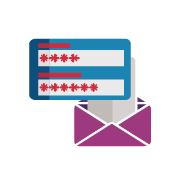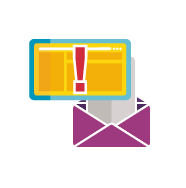
Unfortunately, wherever there is money there will also be fraud and scams. Thankfully, many of these frauds and scams are well known and there are signs you can look out for to prevent yourself from being caught out.
what is fraud?

Fraud is when people are tricked out of their money. For example, fraudsters or hackers commit fraud when they steal personal information and bank details (known as identity theft) to commit fraud.
phishing

What is it?
An email encouraging you to reveal personal details.
What happens?
You receive an ‘urgent’ email taking you to a website asking for your personal details, like your full PIN and password. The site might look real, but is really a fake site set up by criminals to get your details.
How to prevent this
Banks will never ask you to give ALL the letters or numbers of your PIN or password. Never provide your full personal details online.
Phishing can also happen by text message (known as smishing) or by phone (known as vishing).
pharming

What is it?
A piece of computer code that sends internet users to a fake website.
What happens?
You will be on a genuine website but the code on your computer will allow fraudsters to direct you to a fake website without your knowledge, to capture personal details such as bank card numbers. This type of code often gets onto computers through links in spam email.
How to prevent this
When buying online, always check that you’re on a secure payment website by looking at the website address. You should see a padlock and 'https' rather than 'http'. If in doubt, do not proceed with any transaction.
Never click on a link on an email from a source you don’t recognise.
Use antivirus software to warn you when you enter an unsecured site.
prize draws and lottery scams

What is it?
A letter or email offering you a large prize, saying you have been selected or have won.
What happens?
The letter or email asks you to send a small amount of money, or to provide your bank details or prove your identity to claim your ‘prize’. The fraudsters then steal your money or your identity. You might be told to ring a number to claim your prize and this will be a premium number that costs a lot of money, which then goes to fraudsters.
How to prevent this
If it sounds ‘too good to be true’, then it probably is. Never send money, give your details or call a number if you don’t recognise the sender. You can’t win a lottery or a draw you haven’t entered!
Search online and you might find other people have reported the scam already.
how to stay safe

You can’t protect yourself against every eventuality, but here are a few general rules:
- Never give out your personal or bank account information.
- Keep your bank card and PIN number secure. Don’t write your PIN number anywhere.
- Keep your personal information private i.e. shred important letters and documents.
- Always keep your receipts.
- Be wary if you are contacted unexpectedly by a company or person you’ve never heard of.
- Be suspicious if you’re pressured into making an immediate decision.
- Be suspicious if a ‘company’ lacks clear contact details e.g. only includes a mobile number or a PO box address.
- Remember: if it sounds too good to be true it probably is – there is no such thing as free, quick or easy money.
- When selling online, never send goods until you receive full payment.
- Don’t share personal information on social media.